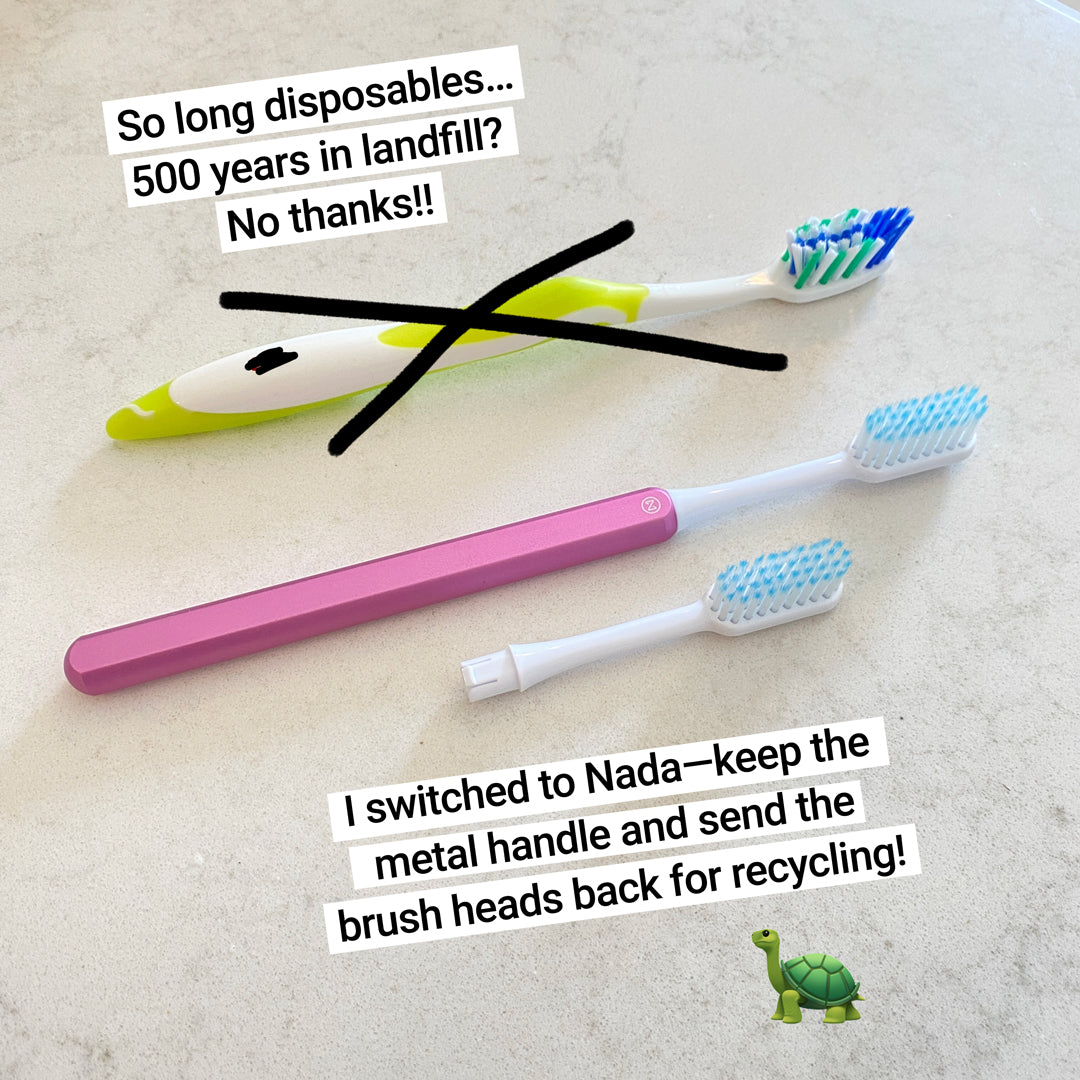Sustainability has become a critical topic in today's world as people strive to make more environmentally conscious choices.
When it comes to packaging, containers and products two commonly used materials are plastic and aluminum. Both materials have their advantages and disadvantages, but which one is more sustainable?
In this blog post, we will compare the sustainability of plastic and aluminum, examining their production, use, recycling, and environmental impacts to help you make an informed decision.
We are not focussing specifically on toothbrushes in this post, although we’re pretty confident by the end of the post you'll understand why we chose aluminum for our toothbrush handles.
Production
The production of plastic involves extracting and refining fossil fuels, such as oil and natural gas, which are non-renewable resources. The extraction process can have negative environmental impacts, such as habitat destruction, air pollution, and water contamination. Additionally, plastic production requires a significant amount of energy, contributing to greenhouse gas emissions and climate change.
On the other hand, aluminum production requires mining bauxite, which is a natural resource found in the earth's crust. The mining process can also have environmental impacts, such as deforestation, habitat destruction, and soil erosion. However, aluminum is highly recyclable, which means that a significant portion of aluminum used in production comes from recycled sources. Recycling aluminum requires less energy compared to extracting and refining bauxite, resulting in lower greenhouse gas emissions.
Use
Plastic and aluminum are both lightweight materials that offer durability and versatility in their use.
Plastic is commonly used in various applications, such as packaging, containers, and consumer goods. It is lightweight, easy to mold, and has a low production cost, making it widely used in many industries. However, plastic is also known for its single-use nature, leading to a significant amount of plastic waste that ends up in landfills or as litter in the environment, causing pollution and harm to wildlife.
Aluminum, on the other hand, is commonly used in applications such as beverage cans, food containers, and foil.
Aluminum is known for its excellent recyclability, as it can be recycled indefinitely without losing its quality.
Additionally, aluminum can be easily separated from other materials during the recycling process, making it highly efficient in terms of recycling.
Recycling
Recycling plays a crucial role in the sustainability of both plastic and aluminum.
Plastic recycling is challenging due to the wide variety of plastic types and the complexity of the recycling process. Some types of plastic are not widely accepted for recycling, and the recycling rates for plastic are generally low. Additionally, recycled plastic often results in lower-quality materials that have limited applications, leading to a higher demand for virgin plastic in production.
On the other hand, aluminum is one of the most recycled materials globally, with a high recycling rate.
Recycling aluminum requires significantly less energy compared to producing aluminum from raw materials, resulting in substantial energy savings and reduced greenhouse gas emissions. Additionally, recycled aluminum can be used in various applications, including beverage cans, building materials, and automotive parts, without losing its quality. This makes aluminum recycling a more sustainable option compared to plastic recycling.
Environmental Impacts
Both plastic and aluminum have environmental impacts throughout their lifecycle. Plastic waste is a significant environmental concern, as it can persist in the environment for hundreds of years, causing pollution, harming wildlife, and contributing to the global plastic pollution crisis. Plastic waste also requires proper management, including collection, sorting, and disposal, which can be challenging and costly.
Aluminum production contributes to deforestation, habitat destruction, and soil erosion during the mining process. Additionally, aluminum production requires a significant amount of energy, resulting in greenhouse gas emissions and contributing to climate change. However, aluminum's high recyclability and energy-saving properties during the recycling process offset some of its negative environmental impacts, making it a more sustainable option compared to plastic.
Thanks for reading!
Simon




